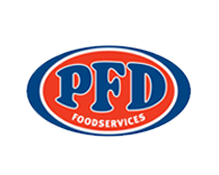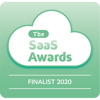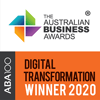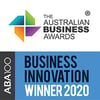Rulebased Systems
Rulebased systems:A rule-based system is a set of rules that together define how a certain task should be performed. The rules are usually if-then statements, which specify what action should be taken under what circumstances.
Modern society now relies heavily on rule-based systems. Applications of this technology can be found in a variety of sectors, including healthcare, banking, and other fields. This article will explore the history, current uses and potential applications for rule-based systems.
The concept of rule-based systems has been around since the 1950s when it was first used in artificial intelligence research. It is based on the idea that certain rules should be applied to specific data inputs in order to generate desired outcomes. Over time, these rules became increasingly sophisticated as computer processing power increased. Today, rule-based systems are used in many different fields such as medical diagnosis, financial analysis and natural language processing.
Developers of rule-based systems strive to create software which is accurate and reliable while also being intuitive and user friendly. As technology advances, so too do the possibilities presented by rule-based systems – they offer promising opportunities for improving existing processes or creating entirely new ones. This article will look at both current applications of this technology and its future prospects in more detail.
What Is Rule-Based Automation?
Rule-based automation is a technology used to automate decision making and processes, based on user data privacy. It relies on values of openness that allow for the wide range of applications in artificial intelligence. Business rule engines are an example of this type of automation as they use a belief rule representation scheme, which consists of a belief rule base and inference engine to control structures. These systems have become increasingly popular due to their ability to make decisions with greater accuracy than manual processing while also providing the flexibility needed in today’s business world.
Furthermore, these systems can be applied across many different industries including finance, healthcare and education among others due to its capability to process large amounts of data quickly and accurately. Additionally, its capacity for scalability allows organizations to increase or decrease resources depending on need without disrupting the flow of operations. In addition, these systems are highly customizable allowing them to adapt easily when faced with new challenges or changes in the environment. As such, it has become an indispensable tool for companies looking for efficient ways to manage their data and automate processes.
What Is The Difference Between A Rule Based System And A Knowledge Based System?
Rule based systems and knowledge based systems are two subtypes of artificial intelligence (AI) that exist for different applications, each one having its own unique characteristics. A rule-based system is a type of AI which uses pre-defined rules in order to make decisions or solve problems. It processes the data using logical if-then statements, where certain conditions have to be fulfilled before an action can take place. These traditional ‘if then’ rules allow the computer to process and understand complex information without needing extensive programming or machine learning algorithms. The representation of these rules within the system requires simplification as well as weighting depending on their importance, in order to limit any potential errors when processing them.
A Knowledge Based System is another form of AI which involves a set of facts organized into a database and used by software agents to draw conclusions from it. This type of system depends heavily on inference engines; programs designed specifically to interpret the data stored in the database so that they can identify patterns and relationships between objects in order to help with decision making. Unlike rule based systems, there is no need for manual coding since most KBSs use highly sophisticated forms of reasoning such as probabilistic methods or natural language processing. In addition, many KBSs include components like Machine Learning Systems or Rules Based AI Systems which further enhance their ability to detect correlations between objects found in the databases.
What Are The Advantages And Disadvantages Of Rule Based Classification?
Rule-based classification is a method of sorting data into groups using predetermined rules that are created by experts. This type of system provides an efficient way to categorize the data, but it does have its drawbacks.
The advantages of rule-based systems include their ability to make use of expertise and knowledge bases developed over time; they can also be used in decision support systems, as well as in expert systems such as backward or forward chaining. Furthermore, these systems are easy to implement and maintain due to their straightforward coding structure. Finally, there is no need for extensive training with this type of system since all the rules are already established.
On the other hand, one disadvantage is that users must know exactly how the rules work and apply them correctly for accurate results; otherwise, incorrect decisions may result from improper implementation. Additionally, because rule-based classifications rely on pre-defined criteria based on human experience and intuition rather than machine learning algorithms like those found in modern recommender systems, accuracy may suffer when dealing with complex datasets or large amounts of data that require more sophisticated methods of analysis. Therefore, while rule-based systems offer a viable means of categorization under certain circumstances, they should not be viewed as a suitable solution for every situation where classification is required.
When Does One Use Rule Based Systems Opposed To Statiscal Methods And Vice Versa?
Rule based systems are computer-based decision making mechanisms that use predefined rules to make decisions. These rules can be programmed into a machine learning algorithm or written in programming languages such as Java, Python, C++ and others. They are used when there is no need for the added complexity of statistical methods, or when certain tasks require certainty factors instead of probability estimates. Rule based systems offer advantages such as easy implementation and maintenance, high accuracy and faster training times compared to statistical models.
On the other hand, rule based classification may not perform well on complex data sets due to lack of flexibility. In this case, it would be more efficient to employ a combination of rule-cycle hybrid with other learning classifier systems or artificial neural networks. This could enable the system to learn from its mistakes over time and improve performance by adapting itself to new contexts. Additionally, using a combination of statistical methods and rule based approaches could result in better accuracies since both algorithms have their own strengths which can complement each other’s weaknesses. Ultimately it depends upon what type of problem one wants to solve and how willing they are to accept risk versus benefit when deciding between these two approaches. For instance, if cyber hygiene is important then utilizing a rule-based approach often provides higher levels of security than less rigorous alternatives like relying solely on statistical methods.
Conclusion
Rule-based automation is a useful tool for making decisions and providing solutions to problems. It works by creating rules that are used to define the behavior of a system or process. Rule-based systems provide an efficient method of classifying data quickly, without needing to consider each individual element independently. This can be advantageous when dealing with large quantities of data.
In comparison to knowledge based systems, rule-based classification relies on pre-defined criteria instead of complex algorithms or heuristics. This means it may not be as accurate but does have the advantage of being easier to implement and maintain. The choice between rule based systems and statistical methods largely depends on the desired accuracy level, budget constraints, project timeline, and user preferences.
Overall, rule-based automation provides organizations with an effective way to classify data in a cost-effective manner while still achieving desirable results. It offers users more control over their decision making processes than other techniques like statistical methods thus allowing them to achieve greater levels of accuracy if needed. As such, understanding how rule-based systems work is key for any organization looking for efficient solutions in order to reach its goals efficiently and effectively.
PREVIOUS NARROW AI GLOSSARY TERM
NEXT NARROW AI GLOSSARY TERM
Rulebased Systems Definition
Exact match keyword: Rulebased Systems N-Gram Classification: Rule-based Software, rule-based systems engineering, rule-based system architectures Substring Matches: Rule, systems Long-tail variations: "Rule-based Software", "rule-based Systems Engineering", "rule-based System Architectures" Category: Technology, AI/Robotics Search Intent: Information, Research, Solutions Keyword Associations: Artificial Intelligence (AI), Expert Systems, Machine Learning Semantic Relevance: Artificial Intelligence (AI), Expert Systems, Machine Learning Parent Category: Technology Subcategories: Artificial Intelligence (AI), Expert Systems, Machine Learning Synonyms: AI Rules, Computer Rulesets, Programming Logic Similar Searches : Artificial Intelligence (AI), Expert Systems, Machine Learning Geographic Relevance : Global Audience Demographics : Programmers, Technologists/Engineers , Researchers Brand Mentions : IBM Watson , Microsoft Azure , Google Cloud Platform Industry-specific data : Programming languages such as Java and Python , Database technologies such as MySQL Commonly used modifiers : "Software", "Engineering" , "Architectures" Topically Relevant Entities : Artificial Intelligence (AI) , Expert Systems , Machine Learning , AI Rules , Computer Rulesets , Programming Logic ,Rule based software applications."Larry will be our digital expert that will enable our sales team and add that technological advantage that our competitors don't have."
Kerry Smith
CEO, PFD Foods
$1.6 billion in revenue 
"Lion is one of Australasia’s largest food and beverage companies, supplying various alcohol products to wholesalers and retailers, and running multiple and frequent trade promotions throughout the year. The creation of promotional plans is a complicated task that requires considerable expertise and effort, and is an area where improved decision-making has the potential to positively impact the sales growth of various Lion products and product categories. Given Complexica’s world-class prediction and optimisation capabilities, award-winning software applications, and significant customer base in the food and alcohol industry, we have selected Complexica as our vendor of choice for trade promotion optimisation."
Mark Powell
National Sales Director, Lion
"At Liquor Barons we have an entrepreneurial mindset and are proud of being proactive rather than reactive in our approach to delivering the best possible customer service, which includes our premier liquor loyalty program and consumer-driven marketing. Given Complexica’s expertise in the Liquor industry, and significant customer base on both the retail and supplier side, we chose Complexica's Promotional Campaign Manager for digitalizing our spreadsheet-based approach for promotion planning, range management, and supplier portal access, which in turn will lift the sophistication of our key marketing processes."
Richard Verney
Marketing Manager
Liquor Barons

"Dulux is a leading marketer and manufacturer of some of Australia’s most recognised paint brands. The Dulux Retail sales team manage a diverse portfolio of products and the execution of our sales and marketing activity within both large, medium and small format home improvement retail stores. We consistently challenge ourselves to innovate and grow and to create greater value for our customers and the end consumer. Given the rise and application of Artificial Intelligence in recent times, we have partnered with Complexica to help us identify the right insight at the right time to improve our focus, decision making, execution, and value creation."
Jay Bedford
National Retail Sales Manager
Dulux

"Following a successful proof-of-concept earlier this year, we have selected Complexica as our vendor of choice for standardizing and optimising our promotional planning activities. Complexica’s Promotional Campaign Manager will provide us with a cloud-based platform for automating and optimising promotional planning for more than 2,700 stores, leading to improved decision-making, promotional effectiveness, and financial outcomes for our retail stores."
Rod Pritchard
Interim CEO, Metcash - Australian Liquor Marketers
$3.4 billion in revenue 
"After evaluating a number of software applications and vendors available on the market, we have decided to partner with Complexica for sales force optimisation and automation. We have found Complexica’s applications to be best suited for our extensive SKU range and large set of customers, being capable of generating recommendations and insights without burdening our sales staff with endless data analysis and interpretation.
Aemel Nordin
Managing Director, Polyaire
"DuluxGroup is pleased to expand its relationship with Complexica, a valued strategic partner and supplier to our business. Complexica’s software will enable DuluxGroup to reduce the amount of time required to generate usable insights, increase our campaign automation capability, personalise our communications based on core metrics, and close the loop on sales results to optimise ongoing digital marketing activity."
James Jones
Group Head of CRM, DuluxGroup
"Instead of hiring hundreds of data scientists to churn through endless sets of data to provide PFD with customer-specific insights and personalised recommendations, Larry, the Digital Analyst® will serve up the answers we need, when we need them, on a fully automated basis without the time and manual processes typically associated with complex analytical tasks.”
Richard Cohen
CIO, PFD Foods
$1.6 billion in revenue 
"As a global innovator in the wine industry, Pernod Ricard Winemakers is always seeking ways to gain efficiencies and best practices across our operational sites. Given the rise of Artificial Intelligence and big data analytics in recent times, we have engaged Complexica to explore how we can achieve a best-in-class wine supply chain using their cloud-based software applications. The engagement is focused on Australia & New Zealand, with a view to expand globally."
Brett McKinnon
Global Operations Director, Pernod Ricard Winemakers
"70% - 80% of what we do is about promotional activity, promotional pricing -- essentially what we take to the marketplace. This is one of the most comprehensive, most complex, one of the most difficult aspect of our business to get right. With Complexica, we will be best in class - there will not be anybody in the market that can perform this task more effectively or more efficiently than we can."
Doug Misener
CEO, Liquor Marketing Group
1,400+ retail stores 
"The key thing that makes such a difference in working with Complexica is their focus on delivering the business benefits and outcomes of the project."
Doug Misener
CEO, Liquor Marketing Group
1,400+ retail stores 
"Australia needs smart technology and people, and it has been a great experience for me to observe Complexica co-founders Zbigniew and Matt Michalewicz assemble great teams of people using their mathematical, logic, programming, and business skills to create world-beating products. They are leaders in taking our bright graduates and forging them into the businesses of the future."
Lewis Owens
Chairman of the Board, SA Water 
"Having known the team behind Complexica for some years ago now, I am struck by their ability to make the complex simple - to use data and all its possibilities for useful purpose. They bring real intelligence to AI and have an commercial approach to its application."
Andrew McEvoy
Managing Director, Fairfax Media - Digital 
"I have worked with the team at Complexica for a number of years and have found them professional, innovative and have appreciated their partnership approach to delivering solutions to complex problems."
Kelvin McGrath
CIO, Asciano 
“Working with Complexica to deliver Project Automate has been a true partnership from the initial stages of analysis of LMG’s existing processes and data handling, through scoping and development phase and onto delivery and process change adoption. The Complexica team have delivered considerable value at each stage and will continue to be a valued partner to LMG."
Gavin Saunders
CFO, Liquor Marketing Group 
“Complexica’s Order Management System and Larry, the Digital Analyst will provide more than 300 Bunzl account managers with real-time analytics and insights, to empower decision making and enhanced support. This will create more time for our teams to enable them to see more customers each day and provide the Bunzl personalised experience.”
Kim Hetherington
CEO, Bunzl Australasia 
"The team behind Complexica develops software products that are at the cutting edge of science and technology, always focused on the opportunities to deliver a decisive competitive edge to business. It has always been a great experience collaborating with Matthew, Zbigniew and Co."
Mike Lomman
GM Demand Chain, Roy Hill Iron Ore 
"The innovations that the Complexica team are capable of continue to amaze me. They look at problems from the client side and use a unique approach to collaborating with and deeply understanding their customers challenges. This uniquely differentiates what they bring to market and how they deliver value to customers."
John Ansley
CIO, Toll Group 
"Rather than building out an internal analytics team to investigate and analyse countless data sets, we have partnered with Complexica to provide our sales reps with the answers they need, when they need them, on a fully automated basis. We are excited about the benefits that Larry, the Digital Analyst will deliver to our business.”
Peter Caughey
CEO, Coventry Group 
“Complexica’s Order Management System and Larry, the Digital Analyst will provide more than 300 Bunzl account managers with real-time analytics and insights, to empower decision making and enhanced support. This will create more time for our teams to enable them to see more customers each day and provide the Bunzl personalised experience.”
Kim Hetherington
CEO, Bunzl Australasia 
"After an evaluation process and successful proof-of-concept in 2016, we have chosen to partner with Complexica to upgrade the technological capability of our in-field sales force. The next-generation Customer Opportunity Profiler provided by Complexica will serve as a key tool for sales staff to optimise their daily activities, personalise conversations and interactions with customers, and analyse data to generate actionable insights."
Stephen Mooney
Group Sales Capability Manager, DuluxGroup
$1.7 billion in revenue
"After evaluating a number of software systems available in the marketplace, we have ultimately selected Complexica as our vendor of choice for sales force automation and CRM. Given the large SKU range we carry and very long tail of customers we serve, Complexica’s applications are best suited to deal with this inherent complexity without burdening our staff with endless data entry."
Nick Carr
CEO, Haircaire Australia
Australia's largest distributor of haircare products
“Asahi Beverages is Australia’s largest brewer, supplying a leading portfolio to wholesalers and retailers, including some of Australia’s most iconic brands. Last year Asahi Beverages acquired Carlton & United Breweries, which is its Australian alcohol business division. To harness the strength of our expanded portfolio, we partner with our customers to run multiple and frequent trade promotions throughout the year, delivering long-term growth for both our business and theirs. Given the inherent complexity in optimising promotional plans and our continued focus on revenue and growth management, we have selected Complexica as our vendor of choice after a successful Proof-of-Concept of its world-class optimisation capabilities.”
Kellie Barnes
Group Chief Information Officer
Asahi Beverages
"Dulux is a leading marketer and manufacturer of some of Australia’s most recognised paint brands. The Dulux Retail sales team manage a diverse portfolio of products and the execution of our sales and marketing activity within both large, medium and small format home improvement retail stores. We consistently challenge ourselves to innovate and grow and to create greater value for our customers and the end consumer. Given the rise and application of Artificial Intelligence in recent times, we have partnered with Complexica to help us identify the right insight at the right time to improve our focus, decision making, execution, and value creation."
Jay Bedford
National Retail Sales Manager, DuluxGroup
"At Liquor Barons we have an entrepreneurial mindset and are proud of being proactive rather than reactive in our approach to delivering the best possible customer service, which includes our premier liquor loyalty program and consumer-driven marketing. Given Complexica’s expertise in the Liquor industry, and significant customer base on both the retail and supplier side, we chose Complexica's Promotional Campaign Manager for digitalizing our spreadsheet-based approach for promotion planning, range management, and supplier portal access, which in turn will lift the sophistication of our key marketing processes."
Richard Verney
Marketing Manager, Liquor Barons


































